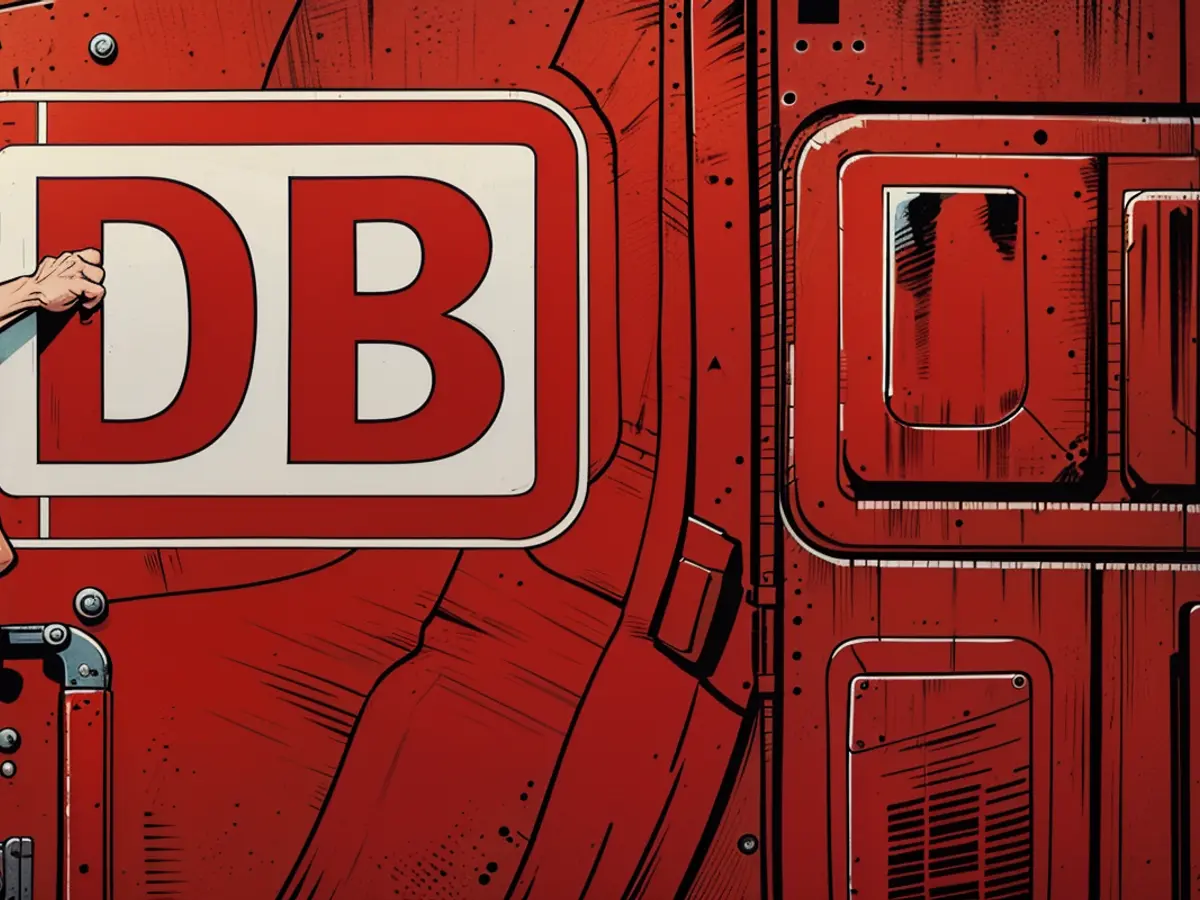Semiannual financial statement - German Railways with billions in losses in the first half-year
Strikes, extreme weather events, construction sites, and a weak demand have caused the Deutsche Bahn to incur a loss of 1.2 Billion Euro in the first half of 2024, after accounting for interest and profit taxes, as the railway company announced. In the previous year, the loss was only 71 Million Euro.
However, the company had already made numerous investments in infrastructure in the previous year and therefore expects significant repayments from the Federal Government in 2024. Bahn CEO Richard Lutz assumes that the railway company will at least operate with black figures, that is, before interest and taxes, by the end of the year.
"Extreme weather events of unprecedented scale have pushed the already neglected railway infrastructure to its limits and worsened the operational and financial situation in passenger and freight transport," Bahn CEO Lutz stated. "In addition, there were strikes and incidents such as the Rauheberg tunnel."
Even the profitable logistics subsidiary DB Schenker could not offset the losses in the first half of the year. The company, which is up for sale, generated an operating profit (EBIT) of 520 Million Euro. However, this was around 100 Million Euro less than in the previous year.
The Group revenue also decreased by three percent in the first six months to 22.3 Billion Euro. One reason for the weak first half of the year was the strikes by the German Train Drivers' Union in the prolonged wage dispute. The strikes alone cost the railway around 300 Million Euro.
However, the company was able to reduce its high liabilities by around one Billion Euro to now 33 Billion Euro compared to the end of the previous year. This was due to the sale of the foreign subsidiary Arriva and the payment of the first installment of a billion-dollar equity increase by the Federal Government.
- The strikes by the German Train Drivers' Union significantly impacted the German Railway, leading to a financial loss of approximately 300 million Euro during the first half of 2024.
- Despite the financial challenges, the German Railway, under the leadership of CEO Richard Lutz, expects to operate with profit before interest and taxes by the end of 2024.
- Under normal circumstances, the German Railway's logistics subsidiary, DB Schenker, would have been able to offset these losses, but due to the strike, it only generated an operating profit of 520 million Euro this year, a decrease of around 100 million Euro compared to the previous year.
- In the face of these financial difficulties, the German Railway was able to reduce its high liabilities by around 1 billion Euro to 33 billion Euro, thanks in part to the sale of the foreign subsidiary Arriva and the payment of the initial installment of a billion-dollar equity increase from the German government.
- The CEO of German Railway, Richard Lutz, attributed the company's financial struggles to extreme weather events, strikes, and incidents such as the Rauheberg tunnel, which have pushed the already neglected railway infrastructure to its limits.
- The German Railway, also known as Deutsche Bahn, has faced a significant financial setback, incurring a loss of 1.2 billion Euro in the first half of 2024, a significant increase from the 71 million Euro loss it reported in the previous year.








